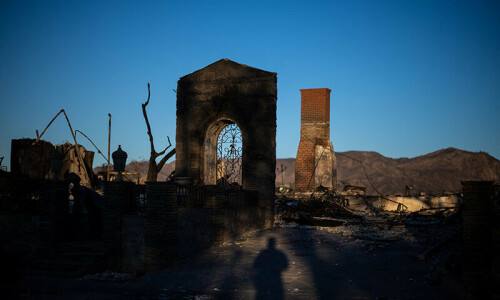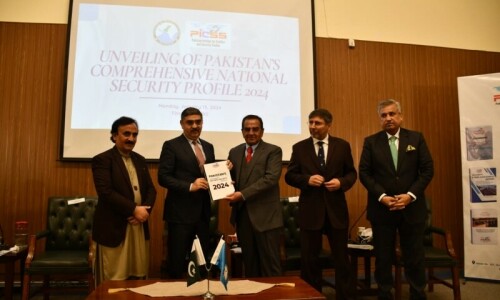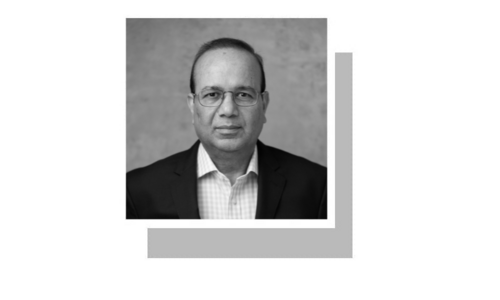PERHAPS it was a camera and microphone too many for the voluble interior minister. After avoiding controversy and speaking relatively forthrightly in his many engagements in the US, Interior Minister Nisar Ali Khan has ended his trip on a most peculiar note.
He told the media that Abdul Aziz, the extremist leader of Lal Masjid in Islamabad, has submitted a written apology to the capital police for his implied defence of the Dec 16 school attack in Peshawar.
Know more: Aziz has apologised for defending APS attack, says Nisar
Those words of Maulana Aziz, spoken openly and brazenly to the national media, caused a wave of revulsion at a time when the country was still mourning the mass killings of schoolchildren.
However, the principal problem with Lal Masjid and its extremist leaders has never been simply the words of comfort they offer to militants and terrorists, but the repeated allegation the mosque is very much part of the network that the state is meant to be fighting.
In fact, in his words spoken at the end of a three-day trip to Washington D.C., the interior minister himself hinted at that very connection when he claimed that “if we arrest him [Abdul Aziz] and it leads to yet another tragic incident, it will have very negative consequences”.
The interior minister also referenced the attempt by the Pervez Musharraf regime to move against Maulana Aziz after the Lal Masjid assault in the summer of 2007 and suggested that the present PML-N government was keen to avoid a similarly embarrassing U-turn.
Also read| Lal Masjid protest: FIR registered against Maulana Aziz
Taken together then, the interior minister was essentially saying this: arresting, prosecuting or in any way taking on Abdul Aziz could trigger acts of violence and terrorism in the country while the government is keen not to get distracted at the moment from its core mission of taking on terrorists and militants in the country.
So, according to the so-called sequential approach of the government, sponsors, affiliates and allies of terrorists and militants are to be taken on at some unspecified later stage, after the hardcore militants have been taken out.
If that sounds bizarre — and incoherent — then it is. Nobody expects the state to militarily take on every militant group operating on Pakistani soil. Common sense dictates that a phased, methodical approach be deployed in challenging militancy, terrorism and extremism on Pakistani soil. But what is Maulana Aziz if not a direct challenge to the state and an impediment in the immediate fight against militancy? Keeping the lines of communication open with a leader who is explicitly in the extremist camp serves what purpose? Surely, others are right to wonder if that is just an excuse to indefinitely delay action against ideological allies.
Published in Dawn February 23rd , 2015
On a mobile phone? Get the Dawn Mobile App: Apple Store | Google Play









































